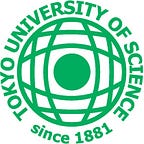The Rates of Unique Names Increased in Japan: More Rapidly for Girls than for Boys
A new study examined the historical changes in the rates of unique names in Japan between 2004 and 2018
An analysis of baby names between 2004 and 2018 by Assistant Professor Yuji Ogihara of Tokyo University of Science revealed that the rates of unique names increased for both boys and girls in Japan, corroborating the rise in uniqueness-seeking and individualism. The increase was more rapid for girls, indicating that parents have a stronger hope for uniqueness and independence in their daughters. His research provides interesting insights into changes in Japanese names and culture.
Previous research has indicated that the rates of common names decreased in Japan between 2004 and 2013, indicating an increase in the tendency to give unique names to babies. However, this finding was obtained by analyzing the separate rankings of common writings (spellings) and readings (pronunciations) of baby names published by private companies. These analyses were conducted because of a lack of comprehensive and systematic database on baby names in Japan, unlike in other nations such as the United States and China. Thus, writings and readings were not analyzed together, making it unclear whether the rates of unique names increased.
Examining directly whether the rates of unique names increased contributes to a better understanding of not only historical changes in names and naming practices, but also cultural changes toward greater individualism that emphasizes uniqueness and independence. To this end, Assistant Professor Yuji Ogihara from the Tokyo University of Science collected names whose writings and readings were both clear and directly investigated historical changes in the rates of unique names in Japan.
He analyzed 7,779 (boys: 3,762, girls: 4,017) names of babies born between 2004 and 2018 whose writings and readings are both available among the 152,995 (boys: 78,623, girls: 74,372) names collected by the Meiji Yasuda Life Insurance Company. The use of these names in insurance contracts indicated that these were real names of actual Japanese residents.
In this study, names with rates below the threshold criteria (0.05%, 0.10%, or 0.15%) were regarded as unique. Assistant Professor Ogihara calculated the total rates of unique names in each year between 2004 and 2018. Then, he analyzed their historical changes.
He found that the rates of unique names increased for both boys and girls. This result was consistent with the prior study that analyzed the rankings of common writings and readings separately. This result shows that parents increasingly gave unique names to their babies and that Japanese culture has increasingly emphasized uniqueness and independence, providing further evidence of the rise in uniqueness-seeking and individualism in Japan. This finding is also consistent with the prior studies showing the rise in individualism in other aspects such as family structure and values.
Interestingly, Assistant Professor Ogihara showed that the rates of unique names increased more rapidly for girls than for boys. This result may suggest that parents came to have stronger hope for their daughters than for their sons that they become unique and independent. This result also demonstrates that sex can be a moderating factor of sociocultural changes. Although the increase in the tendency to give unique names has been reported not only in Japan but also in the United States, Germany, and China, sex differences in these changes have not been examined sufficiently, which makes the present study internationally novel and important. These results were published online on September 14, 2021 and published in Volume 2 of the international journal Current Research in Behavioral Sciences on November 1, 2021.
This study reveals an increase in the rates of unique names in Japan via a direct analysis of actual names. It shows that Japanese culture has changed toward greater individualism that emphasizes uniqueness and independence. Therefore, this research contributes to the understanding of the changes in not only Japanese names and naming practices but also Japanese culture.
Assistant Professor Ogihara plans to continue investigating historical changes in names and naming practices in Japan. In the near future, he aims to examine whether these changes were also found before 2000s and whether there are regional differences in these changes in Japan.
Reference
Title of original paper: Direct evidence of the increase in unique names in Japan: The rise of individualism
Journal: Current Research in Behavioral Sciences
DOI: https://doi.org/10.1016/j.crbeha.2021.100056
About The Tokyo University of Science
Tokyo University of Science (TUS) is a well-known and respected university, and the largest science-specialized private research university in Japan, with four campuses in central Tokyo and its suburbs and in Hokkaido. Established in 1881, the university has continually contributed to Japan’s development in science through inculcating the love for science in researchers, technicians, and educators.
With a mission of “Creating science and technology for the harmonious development of nature, human beings, and society”, TUS has undertaken a wide range of research from basic to applied science. TUS has embraced a multidisciplinary approach to research and undertaken intensive study in some of today’s most vital fields. TUS is a meritocracy where the best in science is recognized and nurtured. It is the only private university in Japan that has produced a Nobel Prize winner and the only private university in Asia to produce Nobel Prize winners within the natural sciences field.
Website: https://www.tus.ac.jp/en/mediarelations/
About Assistant Professor Yuji Ogihara from Tokyo University of Science
Yuji Ogihara, Ph.D., is an Assistant Professor at the Institute of Arts and Sciences and the Faculty of Science Division II at the Tokyo University of Science in Japan. He earned his doctorate from Kyoto University in 2015. His research interests include cultural change, interpersonal relationships, happiness, individualism, and culture. He is a recipient of numerous awards, including the 2015 Student Poster Award (Society for Personality and Social Psychology), and has over 20 publications to his name.
https://www.tus.ac.jp/en/fac/p/index.php?6FD9
https://sites.google.com/site/yujiogiharaweb/english
Funding information
This research was supported by Japan Society for the Promotion of Science (JSPS) KAKENHI (Grant Number: JP19K14368).
Media contact
Tsutomu Shimizu
Email: mediaoffice@admin.tus.ac.jp
